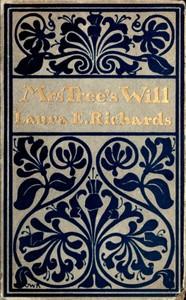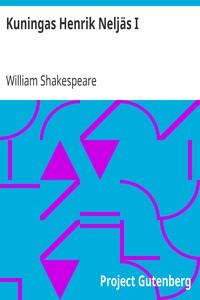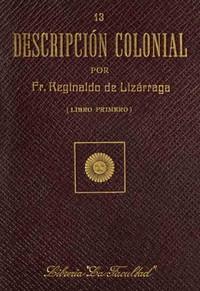|
|
Read this ebook for free! No credit card needed, absolutely nothing to pay.Words: 96045 in 10 pages
This is an ebook sharing website. You can read the uploaded ebooks for free here. No credit cards needed, nothing to pay. If you want to own a digital copy of the ebook, or want to read offline with your favorite ebook-reader, then you can choose to buy and download the ebook.

: Two Chancellors: Prince Gortchakof and Prince Bismarck by Klaczko Julian Ward Frank P Translator - Bismarck Otto Fürst von 1815-1898; Gorchakov Aleksandr Mikhailovich kniaz' 1798-1883; Europe Politics and government 1789-1900@FreeBooksWed 07 Jun, 2023 s. He finally selected a home on the banks of the Main, at Frankfort. Thus, as it happens to more than one of his compatriots, Joukofski, living entirely in a foreign country, and being indeed manifestly unwilling to return to his native land, considered the Occident miserably sunken and corrupted, and hoped only in "holy Russia" for the renovation and safety of a world overrun and possessed by the demon of revolution. The events of February only served to confirm him in these gloomy visions and to plunge him more and more into an uneasy mysticism, at times even irritating, but more often inoffensive and not devoid of a certain unhealthy charm. The campaign of Hungary caused a momentary diversion in his sad thoughts, and filled him with joy. It was not so much the glory with which the Russian army covered itself which pleased his mind; it was not even the triumph attained by the Russian sword, the sword of St. Michael, over "the impure beast:" his prayers, his hopes went far beyond. He hoped--thus he wrote to his imperial pupil that the great czar would profit by the power which God had given him and would "solve a problem on which the crusades had stranded;" that is to say, that he should drive the infidel from Byzantium, and liberate the holy land. Mme. Joukofski, although born a Protestant, felt in unison with her melancholy husband. Her soul had need of a "principle of authority," which failed her in the reformed confession, and which she sought one day in the Orthodox Church, to the great joy of the poet, without, however, being able to find there perfect rest. In fact, in a previous crisis, at the time of the Hellenic insurrection and the war of 1828, the grand chancellor of the court and of the empire had defended this principle of the integrity of the Ottoman Empire with a firmness which nothing could disturb. During eight years he had defended it, braving the storm alone, not allowing himself to be discouraged either by the unpopularity then attaching to the Turkish cause or by the desertion of France. Why should the Russians hope that Austria would now desert this principle so vital for her, that she would desert it at the very moment when it commenced to triumph over the indifference of the Occident, and counted France and England among its most earnest champions? Negotiations were broken off, and nothing could be done but to await the issue of the supreme combat under the walls of Sebastopol. The Russian plenipotentiary awaited it at his post in Vienna in the twofold anguish of a patriot and a relation. The bulwark of the Crimea fell, and Russia found itself in the most critical situation. It was exhausted,--indeed much more exhausted than Europe then thought,--and the prolongation of the war would have infallibly transported the hostilities to the plains of Poland. At this moment Austria intervened anew. It agreed to the demands made by the allies at the conference of Vienna,--even that clause concerning the neutralization of the Black Sea, which it had hitherto resisted as too wounding to Russia. It was not possible to refuse this satisfaction to the allies after the capture of Sebastopol. In reality, these were the easiest conditions which have ever been imposed on a power at the close of a war so long, so bloody, and of such incontestable victories. Austria did more; it sent these conditions under form of an ultimatum, declaring that it would make common cause with the allies if they were not accepted; and Russia accepted them. To look at it plainly, this was a service rendered to a young sovereign, who, having inherited a disastrous war, thus found the means to spare at the same time the memory of his predecessor and the pride of his people. He could say now that he had only made peace because of a new adversary, who had arisen at the side of the old ones, and whom his father did not count on. In fact, it was said in Russia,--it was believed, indeed, so much was it in their interest to believe it. The Russian people were quickly reconciled with the conquerors of Alma and of Malakof. A single power remained in their eyes responsible for their disasters,--the power which during the whole war had rested on its arms. Even at this hour every Russian heart boils with indignation at the thought of Austria, of its immense ingratitude and its great treason. Otto-Edward-Leopold de Bismarck-Schoenhausen, born the 1st of April, 1815, at Schoenhausen, hereditary estate of his family in the old Mark of Brandenburg, could not flatter himself with having, like his friend Alexander Mikha?lovitch, blood of the Saints in his veins. His biographers even observe with visible satisfaction, that at least two of his ancestors were excommunicated by the Church and died in final impenitence. What is more serious is that the most authorized historians of the Mark of Brandenburg, M. de Riedel among others, call into question the noble origin of the family. They show that the first of the line, of whom authentic documents of the fourteenth century speak, Rulo Bismarck, was a member and on several occasions even provost of "the guild of master tailors in cloth" at Stendal, a small market town of the old Mark. The fact does not seem doubtful. But could not the citizens of Stendal, just as well as those of certain cities in Tuscany, have forced every country noble, who wished to inhabit the city, to subscribe himself in one of those guilds? This is the opinion of the tories in this curious genealogical dispute. To hear them, the good citizens of Stendal must have been on a par, in the fourteenth century, with the great citizens of Florence and of Pisa, and Rulo Bismarck must have been master tailor in cloth about as much as Dante, his contemporary, was an apothecary. The whigs, on the contrary, the biographers in national-liberal colors, take their part gayly, and one of them ingeniously concludes, that in any case the ancestor Rulo ought "to contemplate with satisfaction and pride from the high heavens the splendid imperial mantle which his descendant has made for King William out of the cloth of Europe." "Tu non pensavi ch'io loico fossi!" FOOTNOTES: Expressions from the Russian circular of the 6th July, 1848, addressed by Count Nesselrode to his agents in Germany. The Germanic Confederation was formed in 1816. Frankfort was chosen as its seat, whither delegates were sent from all the States of Germany retaining sovereign rights. These delegates formed the assembly called the Diet. The assembly was composed of seventeen envoys, presided over by the representative of Austria. There were however thirty-one States exclusive of the free cities, represented in the last period of the Diet's existence. The Diet was so constituted that each of the following States or combination of States had one representative: Austria; Prussia; Bavaria; Kingdom of Saxony; Hanover; W?rtemberg; Grand Duchy of Baden; Electorate of Hesse; Grand Ducal Hesse; Denmark, for the Duchies of Holstein and Lauenburg; The Netherlands, for Limburg and Luxemburg; The Duchies of Saxe-Meiningen, Saxe-Coburg-Gotha and Saxe-Altenburg; Brunswick and Nassau; The two Mecklenburgs ; Oldenburg, Anhalt and two Schwarzburgs ; Lichtenstein, Reuss, Schaumburg Lippe, Lippe Detmold, Waldeck and Hesse Homburg; The free cities, Lubeck, Frankfort, Bremen and Hamburg. The votes were equal. Sittings were secret. The leading idea with the founders of the Diet was the preservation of internal tranquillity, the next, the formation of a league which should inspire other nations with respect. Free books android app tbrJar TBR JAR Read Free books online gutenberg More posts by @FreeBooks
: Mrs. Tree's Will by Richards Laura Elizabeth Howe - Inheritance and succession Fiction; New England Fiction; Villages Fiction@FreeBooksWed 07 Jun, 2023

: Kuningas Henrik Neljäs I by Shakespeare William Cajander Paavo Emil Translator - Henry IV King of England 1367-1413 Drama; Historical drama; Great Britain History Henry IV 1399-1413 Drama@FreeBooksWed 07 Jun, 2023
|
Terms of Use Stock Market News! © gutenberg.org.in2025 All Rights reserved.






